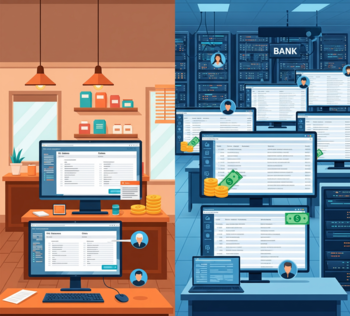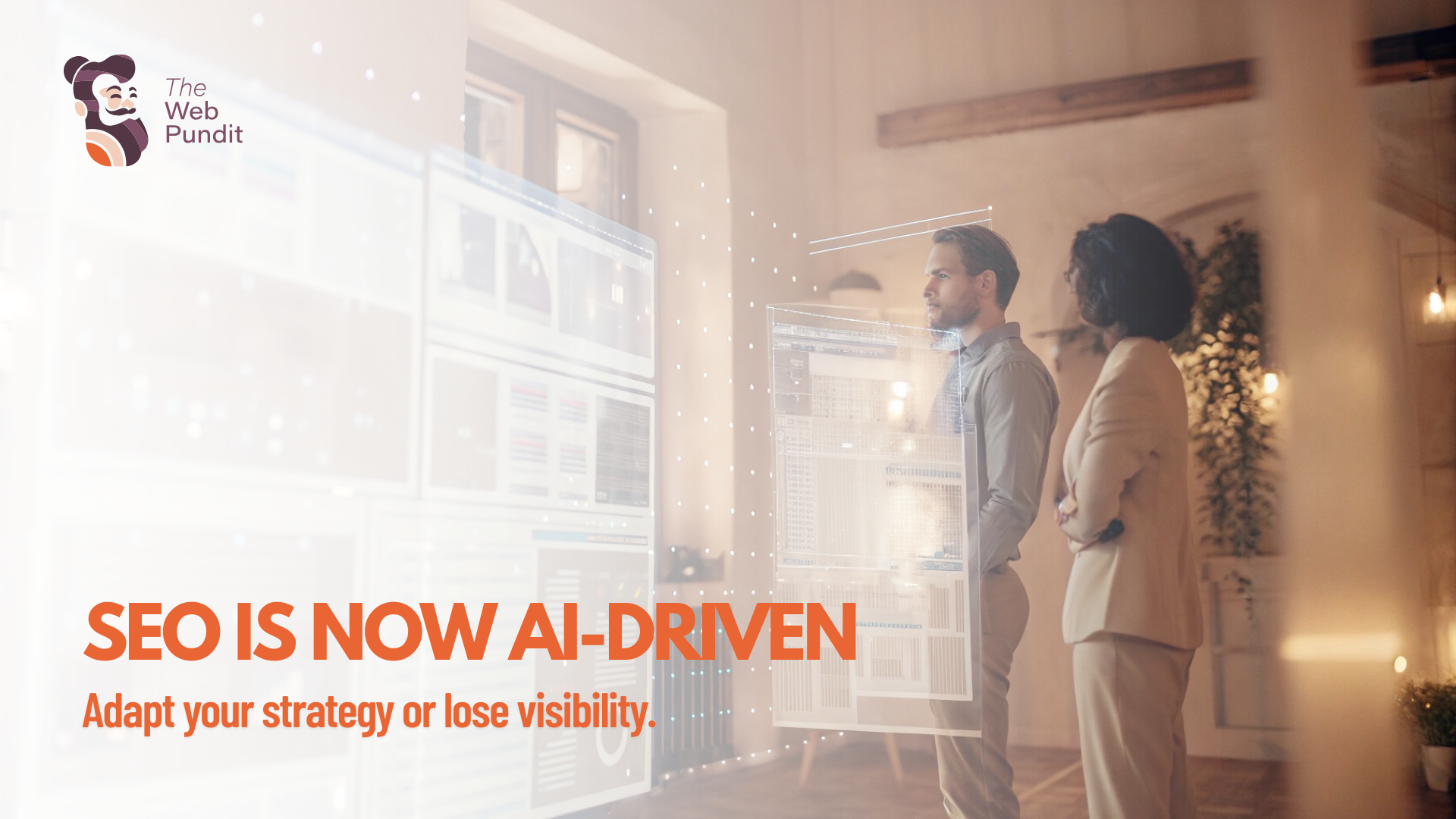RDBMS vs DBMS: Key Differences and When to Use Each Database System (2025 Guide)
Discover the key differences between DBMS and RDBMS, with examples, use cases, and expert guidance on which database system to choose in 2025.

In today’s data-driven world, choosing the right database system can make or break your application’s performance. If you’ve ever searched for RDBMS vs DBMS, you’re probably trying to figure out which one suits your business or project. While both are designed to manage and store data, the difference between DBMS and RDBMS goes far beyond just storing information, it affects scalability, relationships, security, and business growth.
In this guide, we’ll break down the key differences between DBMS and RDBMS, explore their use cases, and help you decide which system to use in 2025.
What is DBMS?
A Database Management System (DBMS) is software that allows you to create, store, retrieve, and update data in a structured way. Unlike raw file systems, DBMS provides controlled access and management of data, ensuring you don’t have to worry about manual file handling.
Examples of DBMS
- Microsoft Access
- dBASE
- XML Database
While DBMS provides a structured way of handling data, it doesn’t inherently manage relationships between datasets. For example, storing customer names and their orders may require manual linking or program logic, DBMS won’t do it automatically.
What is RDBMS?
A Relational Database Management System (RDBMS) is an advanced type of DBMS that organizes data into tables (relations) with rows and columns. The magic lies in relationships: RDBMS allows different tables to connect using primary keys and foreign keys, ensuring data integrity and minimizing redundancy.
Examples of RDBMS
- MySQL
- PostgreSQL
- Oracle
- Microsoft SQL Server
An RDBMS is built with enterprise scalability in mind. It ensures ACID compliance (Atomicity, Consistency, Isolation, Durability), making it the backbone of financial systems, e-commerce platforms, and large-scale enterprise apps.
RDBMS vs DBMS: Key Differences
When comparing RDBMS vs DBMS, the most striking difference is relational capability. Let’s break it down:
DBMS vs RDBMS with Examples

To understand the real-world impact of DBMS vs RDBMS, let’s look at how they work in practical scenarios:
Example 1: Small Business with DBMS (MS Access)
Imagine a small retail shop using Microsoft Access (DBMS) to manage its employee data.
- They might create one table for employee details (name, age, role) and another for salaries.
- If the shop owner wants to know how much a specific employee earns, they’ll need to manually connect both tables or write custom queries.
- Since DBMS doesn’t enforce relationships automatically, errors like duplicate entries or mismatched salary records are more likely.
DBMS works here because the dataset is small, the business is single-user, and relational accuracy isn’t mission-critical.
Example 2: Enterprise Bank with RDBMS (Oracle)
Now, take a large bank using Oracle (RDBMS).
- The bank manages millions of customers, each having accounts, transactions, and loan details spread across multiple tables.
- RDBMS automatically enforces relationships between these tables using primary and foreign keys.
- This means every transaction is linked to the right customer and account, ensuring data integrity and accuracy at a scale.
- On top of that, RDBMS offers ACID compliance, so even if there’s a power outage mid-transaction, the system can recover without losing or corrupting data.
For enterprises like banks, airlines, and e-commerce platforms, RDBMS is non-negotiable it ensures trust, accuracy, and scalability.
When to Use DBMS
While modern businesses often lean toward RDBMS for its scalability and relational power, there are still plenty of situations where a Database Management System (DBMS) is the smarter choice.
1. Small-Scale Projects
DBMS shines when used for lightweight applications such as desktop apps, single-user tools, or academic projects. For example:
- A student developing a project to manage a college library’s basic book inventory.
- A freelancer building a small desktop billing app for a local shop.
These applications don’t demand complex relationships between tables, nor do they need to support hundreds of concurrent users. DBMS provides a simple, cost-effective solution.
2. Limited Datasets
If the volume of data is relatively small and relational integrity is not a big requirement, DBMS is often sufficient.
- A personal diary app storing daily entries.
- A contact manager application saving names, numbers, and emails in a single table.
In these cases, the overhead of managing keys, normalization, or ACID transactions is unnecessary. A simple file-based storage approach gets the job done.
3. Simple, Cost-Effective Storage Solutions
For startups, hobbyists, or individuals who just need to store and retrieve data without investing in heavy infrastructure, DBMS provides a low-cost entry point.
- Tools like MS Access or SQLite are easy to set up, requiring little to no IT expertise.
- DBMS doesn’t demand high-end servers or constant maintenance, making it a go-to for budget-conscious users.
Practical Example
Think of someone running a home-based baking business who wants to track customers and orders. Instead of investing in MySQL or Oracle, they can use MS Access (DBMS) to store customer details and order history. The system may not support multi-user collaboration or automated relationships, but for a small operation, it’s more than enough.
When to Use RDBMS

While DBMS works well for small and simple projects, businesses and enterprises often require much more. This is where a Relational Database Management System (RDBMS) becomes essential.
1. Enterprise-Grade Applications
RDBMS is designed for complex, large-scale environments where data accuracy and multi-user access are critical.
- Banks rely on Oracle or SQL Server to manage millions of accounts and transactions every day.
- E-commerce platforms like Amazon and Flipkart use RDBMS to connect customer profiles, orders, payments, and inventory seamlessly.
Whenever high availability and performance at scale are required, RDBMS is the natural choice.
2. Multi-User Environments
Unlike DBMS, which struggles with concurrency, RDBMS allows hundreds or even thousands of users to access and manipulate data simultaneously.
- Hospitals with multiple doctors accessing patient records.
- Universities where students, teachers, and administrators log into the same system.
ACID compliance ensures that even when multiple users make changes at once, data remains consistent and reliable.
3. Applications Demanding Strong Integrity
In industries where accuracy, security, and compliance are non-negotiable, RDBMS is indispensable.
- Financial systems must guarantee that every transaction is either fully completed or rolled back.
- Healthcare systems must ensure patient records are protected, traceable, and error-free.
With support for constraints, triggers, and foreign keys, RDBMS minimizes errors and enforces strict data rules.
4. Businesses Planning for Growth
If a company expects its data to grow significantly over time, starting with RDBMS is a smart move.
- Startups aiming to expand user bases from a few hundred to millions.
- SaaS companies that plan to scale globally.
RDBMS scales horizontally and vertically, ensuring that businesses never outgrow their database infrastructure.
Practical Example
Imagine a food delivery startup beginning with a few hundred daily orders. Initially, a DBMS might suffice. But as the company scales into thousands of restaurants, millions of users, and complex payment systems, they’ll need an RDBMS like PostgreSQL or MySQL on the cloud to ensure seamless performance and accurate relational data.
Advantages of RDBMS Over DBMS
Why do most companies lean toward RDBMS? Here are some clear advantages:
- Data Integrity: Relationships and constraints ensure data accuracy.
- Scalability: Handles massive datasets without performance breakdown.
- Security: Advanced role-based authentication.
- Reduced Redundancy: Normalization eliminates duplicate data.
- Transaction Management: Reliable operations with rollback and recovery features.
While DBMS is simpler, the advantages of RDBMS over DBMS make it the preferred system for business-critical operations.
How RDBMS and DBMS Fit into Modern Database Trends (2025)

In 2025, businesses are adopting hybrid data strategies, mixing traditional RDBMS with NoSQL or cloud databases. Yet, the foundation of structured data management still lies in understanding RDBMS vs DBMS.
If you’re learning databases, it’s also worth exploring the different types of keys in DBMS, as they play a crucial role in understanding relationships. You can check out our detailed guide here: Understanding the Different Types of Keys in DBMS (2025 Guide).
Frequently Asked Questions (FAQs)
Conclusion: RDBMS vs DBMS - Which One Should You Choose?
The choice between RDBMS and DBMS depends entirely on your project scope:
- Choose DBMS for small-scale, single-user, or lightweight applications.
- Choose RDBMS for enterprise, multi-user, and mission-critical systems that demand integrity and scalability.
As businesses continue to scale in 2025, understanding the difference between DBMS and RDBMS isn’t just academic, it’s a decision that impacts efficiency, reliability, and growth.
Ready to choose the right database system for your business?
Whether you’re building a lightweight app or a scalable enterprise solution, making the right tech decision early can save you time, money, and headaches later. At Web Pundit, we help entrepreneurs and businesses design, optimize, and scale digital systems that actually perform.
Get in touch with us today to find out how we can help you pick, implement, and optimize the best database solution for your project.




